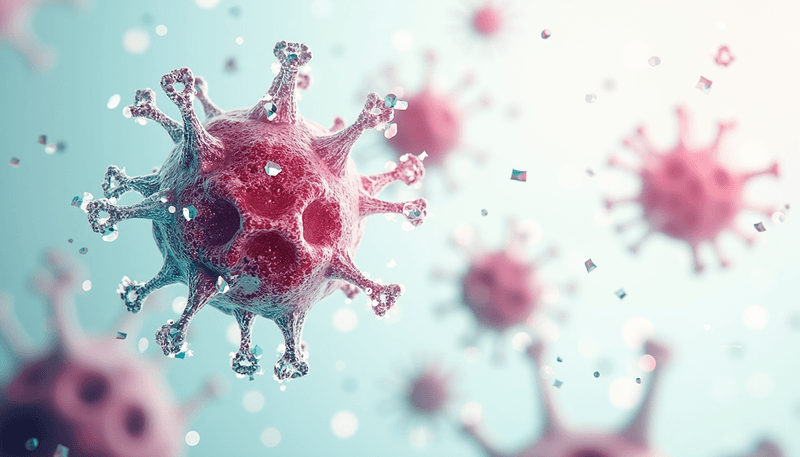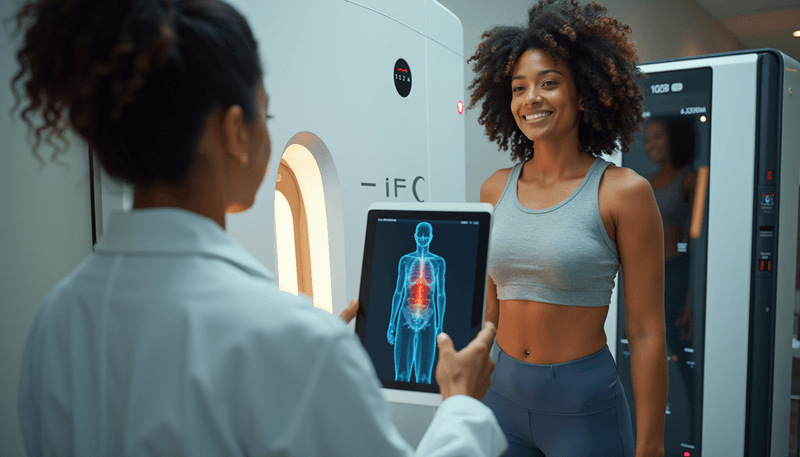New Blood Tests May Predict Breast Cancer

What if a routine blood test could tell you about your breast cancer risk? A groundbreaking study published in Scientific Reports reveals how machine learning is opening new doors in breast cancer prediction. As a medical professional who has witnessed the impact of breast cancer firsthand, I'm excited to share these findings that could transform how we approach breast cancer prevention.
The Power of Blood and Urine Biomarkers
The research team discovered something remarkable: five specific markers in blood and urine tests showed significant connections to breast cancer risk in post-menopausal women. These include plasma urea, plasma phosphate, basal metabolic rate, red blood cell count, and creatinine in urine.
Have you ever wondered why some routine blood tests seem unrelated to cancer screening?
Think of these biomarkers as silent messengers in your body. Just as a weather station collects various data points to predict storms, these biological indicators can signal potential health risks before they become apparent. For instance, higher levels of plasma urea and phosphate appeared to have a protective effect against breast cancer, while elevated red blood cell counts and creatinine levels were associated with increased risk.
What makes this particularly valuable is that these are routine tests many women already get during their annual check-ups.
The Genetic Factor: More Than Just BRCA
One of the most fascinating aspects of this study was its findings about genetic risk scores. The researchers used two different types of polygenic risk scores (PRS) - think of these as detailed genetic maps that can highlight potential cancer risks.
What if your genes could tell a more complete story about your cancer risk?
Imagine your genetic risk as a complex puzzle. Traditional testing might look at just a few large pieces (like the BRCA genes), but PRS examines thousands of smaller genetic variations that, together, create a more complete picture. The study found that using multiple PRS systems together provided better insight than using just one.
Key takeaway: If you're considering genetic testing, discuss with your healthcare provider about comprehensive genetic risk assessment options that go beyond traditional single-gene tests.
Body Composition: Beyond BMI
The study revealed an unexpected finding about body measurements. While we've long known that body mass index (BMI) plays a role in breast cancer risk, the research suggests that basal metabolic rate might be a more precise indicator.
Basal metabolic rate (BMR) measures how much energy your body uses at rest. Think of it as your body's idle speed - like a car's engine running in park. The study found that BMR had a stronger connection to breast cancer risk than traditional BMI measurements.
Practical implications:
- Focus on building and maintaining healthy muscle mass, not just weight loss
- Consider getting a body composition analysis instead of relying solely on scale weight
- Discuss metabolic health with your healthcare provider during check-ups
The Future of Personalized Prevention
This research opens exciting possibilities for personalized breast cancer prevention. By combining genetic information, blood biomarkers, and detailed body composition measurements, healthcare providers could create more tailored screening and prevention strategies.
What steps could you take today to better understand your personal risk factors?
Action steps you can take:
- Schedule regular check-ups that include comprehensive blood work
- Request body composition analysis during physical examinations
- Consider genetic risk assessment if appropriate for your family history
- Keep detailed records of your test results to track changes over time
- Discuss any significant changes in blood work with your healthcare provider
Your role in prevention is active, not passive. While these findings are promising, they're most powerful when combined with existing preventive measures like regular mammograms, healthy lifestyle choices, and awareness of changes in your body.
Take action today: Schedule your next check-up and ask about comprehensive blood work and body composition analysis. Knowledge is power, and understanding your personal risk factors is the first step toward proactive health management.

Dr. Marcus Anthony Bennett
Dr. Marcus Bennett is a Seattle-based freelance medical writer and consultant specializing in mid-aged women's health. With a background in internal medicine and over a decade of experience in preventive care, he is dedicated to making complex health topics accessible. Dr. Bennett completed his MD at Johns Hopkins School of Medicine and residency at the University of Washington. His empathetic and evidence-based approach combines traditional medical expertise with a focus on health disparities, often incorporating practical lifestyle advice. Known for his clear, engaging communication, Dr. Bennett provides actionable insights to empower his audience.







